1. Semi-structured Interview
Primary Research Question
How does people perceive death? How does it differ depending on their cultural background or their personalities?
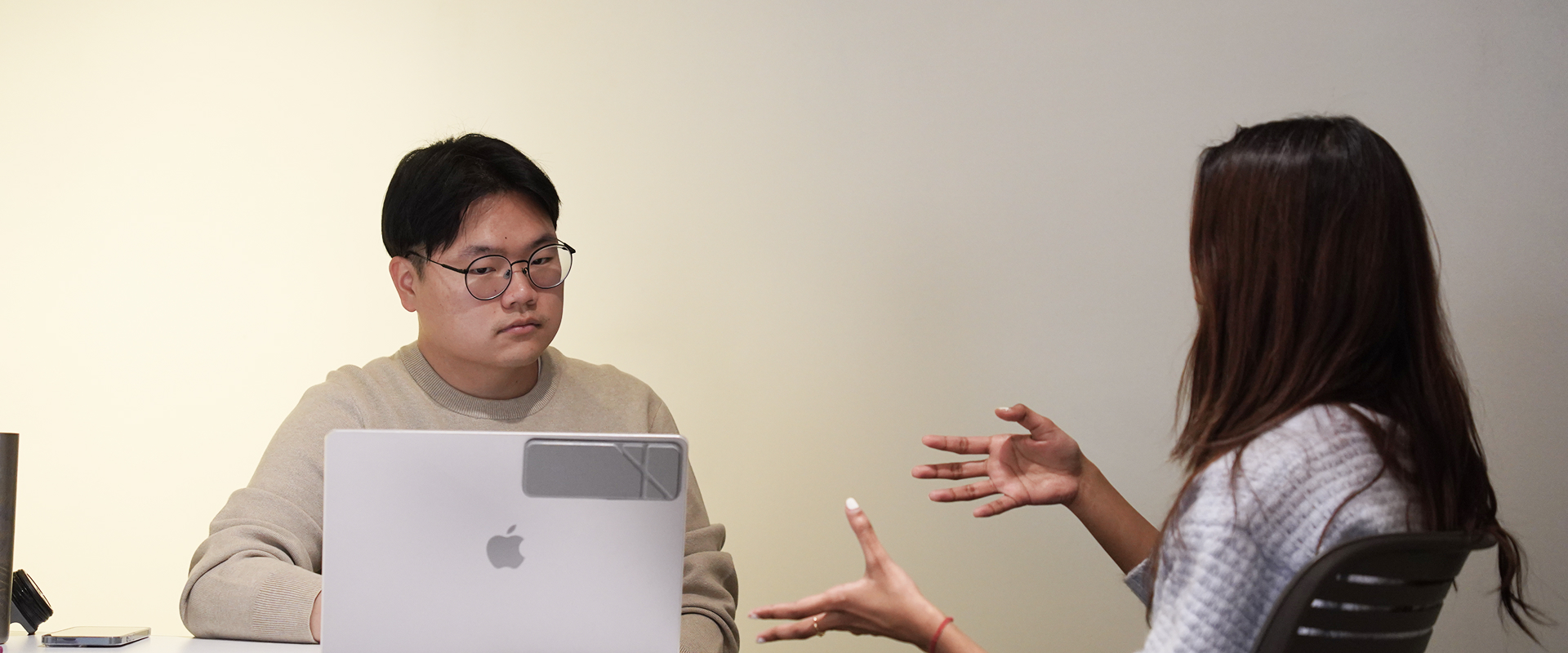
Research Condition
A total of six individuals participated in a semi-structured interview. The minimum time spent was 7 minutes, and the maximum was 20 minutes. The participant group encompassed three ethnic backgrounds and four nationalities. Four participants were between 20 and 24 years old, one was between 25 and 29, and one was between 30 and 34. Notably, none of them held strong religious beliefs.
Fixed Questions
- How would you define death?
- What thoughts come to mind when you’re asked about death?
- What do you think happens when a person dies, physically and/or spiritually?
- In your cultural context, what does the concept of death entail?
- How does your cultural background influence your personal views on death?
Below are concise and refined responses to the above questions, considering personal and sensitive information.
Interviewee 1
Death is a deadline, for the things I want to accomplish. Death is not predictable. It’s scary sometimes. The main reason of the fear is uncertainty. It can happen anytime, anywhere. You never know where it is coming from. From my cultural background, we are told about depending on your sins and good deeds, you got heaven or hell. But I’m not really inclined with that, I just believe it’s nothing, just nothing. Maybe your memories continue with other people, but then it’s just the end for you. I don’t think my religion has much influence in how I think about death. But looking at others, someone close to me, it might just give a little hope of that there might be something after their death. In the context of my own death, there isn’t any influence for me.
Interviewee 2
I think of death as a claustrophobic feeling. I have two ways I think about death. One is like a scientific thing, and the other is an emotional answer. I don’t think about after life, I think it’s just over. But emotionally, I imagine it to be like, I’m still in my body and I can still have my memories and things, but then I’m like stuck, and then I’m like forever dreaming or something. So emotionally, it feels like an endless sleep. In my religious context, people believe in reincarnation, but I don’t specifically believe in that because it doesn’t seem to make sense at all. But then life also doesn’t really make sense being born. I don’t believe in heavy rituals, but I have faith, I like believing in something. Having grown up in different cultures, it’s hard for me to think about which one.
Interviewee 3
Death is when you stop existing. You’re still there in a physical sense but you’re not in yourself anymore. I think the concept of death is for other people around you than for yourself. When you die, you wouldn’t even know. I feel like death isn’t an upsettin topic to me. It’s a part of life. It’s still sad but it’s not upsetting. But I think there is a fear of the unknown for other people. Honestly, I think nothing happens after your death. When I had someone close to my pass away, it was like unbelievable for a long time, because they existed, but suddenly they no longer exist. I also think the funerals makes me really process their death. In my culture, in some communities, people would celebrate death, because they believe and wish it to be the end of the deceased’s cycle of life. Although I don’t believe in reincarnation, I do take part in the rituals, to respect their beliefs.
Interviewee 4
I think there are several ways to define death. There is a state where you are spiritually dead, like mentally, when your body is functioning to some degree but you just feel like you’re already dead. And there is a the more commonly defined physical death, when your body stops functioning and your soul slips the body and go somewhere. I believe in reincarnation, so like your soul going to a different physical body and you are separted from everyone that you know in this life. I think death is sad for sure, but also sometimes liberating for someone who has been in pain.
Interviewee 5
Transcribing in progress
Interviewee 6
Transcribing in progress
Thoughts and Findings
It’s challenging to draw a conclusion with a limited number of interviews. Further interviews will be conducted throughout the research process. As for now, it was interesting to find how differently people perceive the concept of death and afterlife. Most interviewees defined death encompassing both physical and mental/spiritual aspects. Some of them answered that death is a state where there is nothing. Two out of six of them had thoughts about afterlife even though they didn’t hold strong religious beliefs. I wasn’t able to quite reach my goals of generating thoughts directly connected to my research question. Therefore, I will be reframing my questions for future iterations of this interview. Applying the insights I’ve gained through this process to the Johari Window Model, it seems that my perception of life and death might be an “Open Area” for some individuals, while it could also be a “Hidden Area” for others.
2. Drawing as Elicitation
Primary Research Question
What are some shapes or objects the come into mind when asked about death?
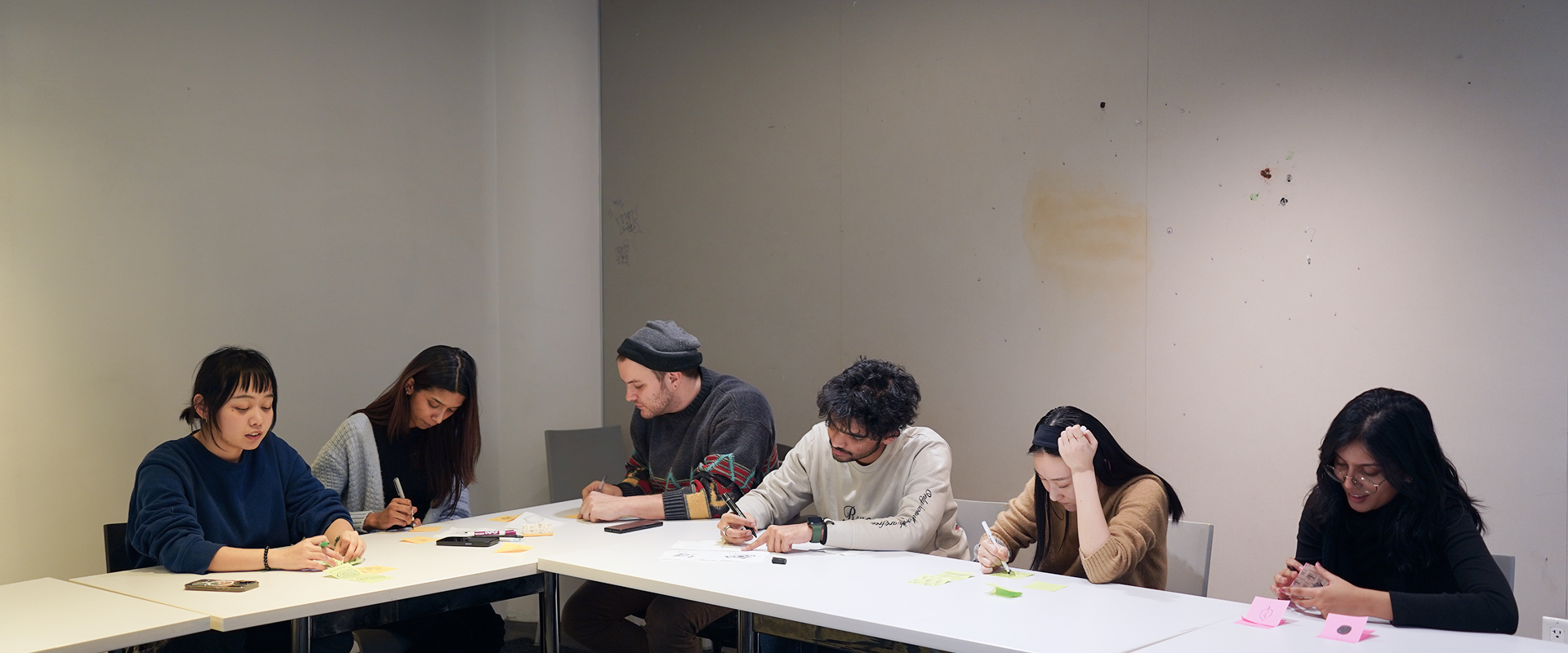
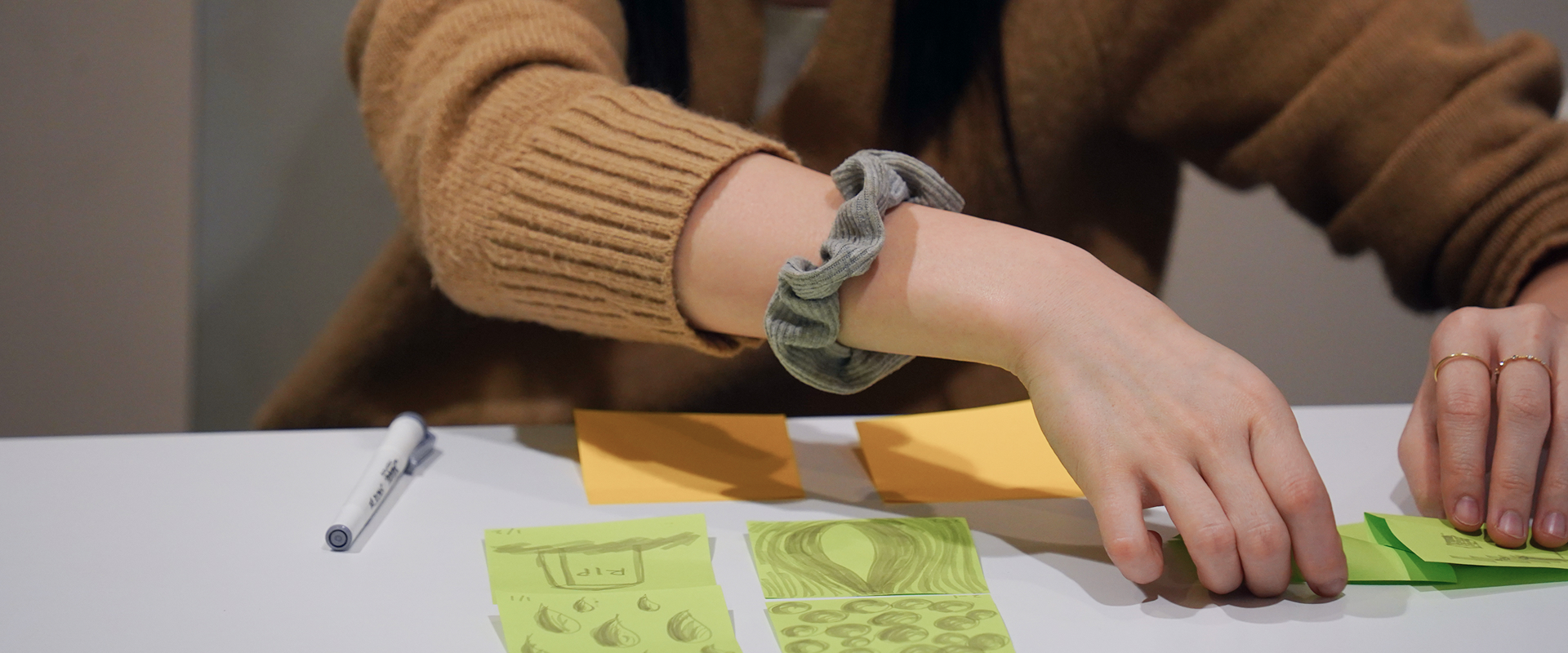
Research Condition
A group drawing session was conducted with a total of six participants. Each participant was asked to draw shapes or a group of shapes, and objects that immediately come to mind when they see the words ‘Death’, ‘Life’, and ‘Loops’ in that order.
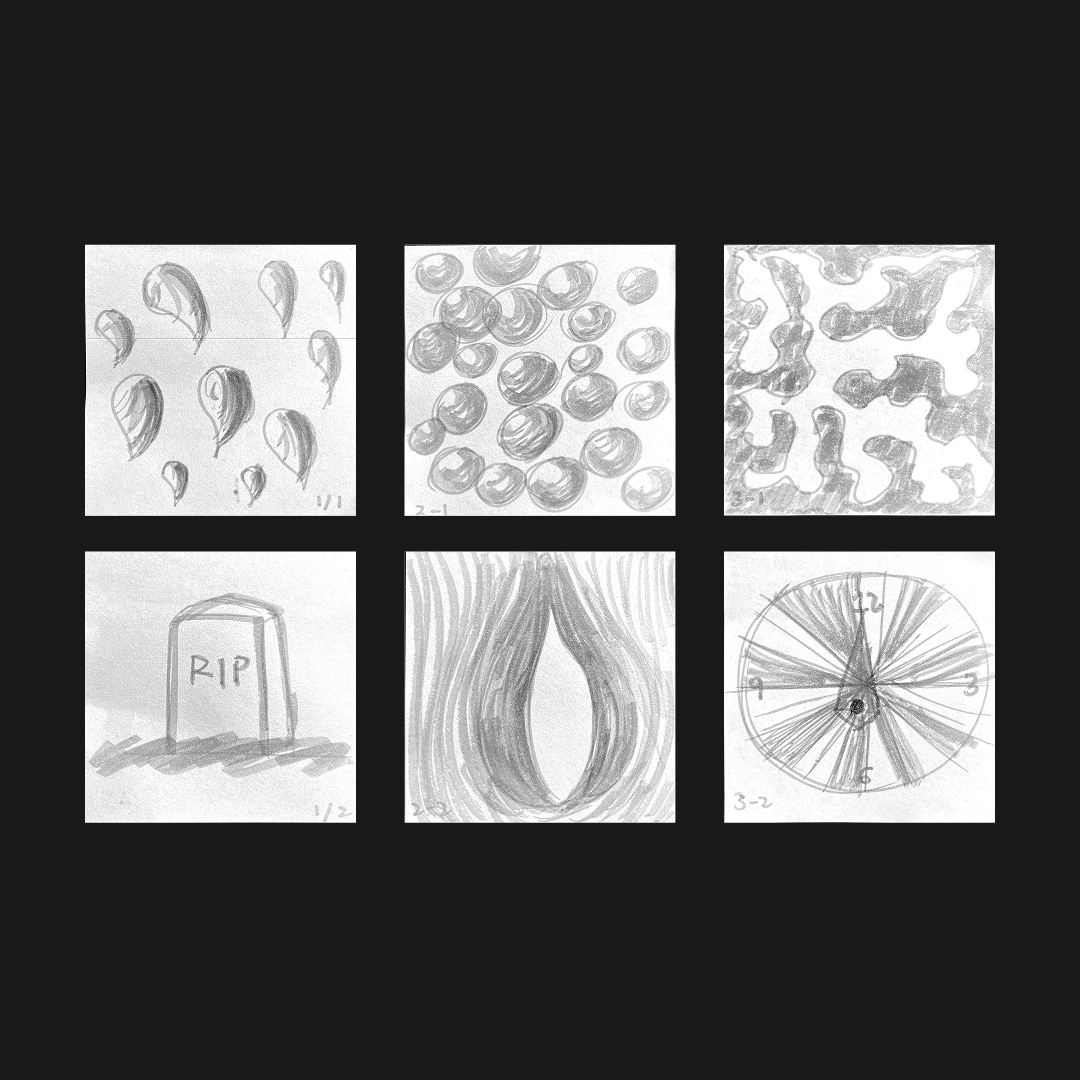
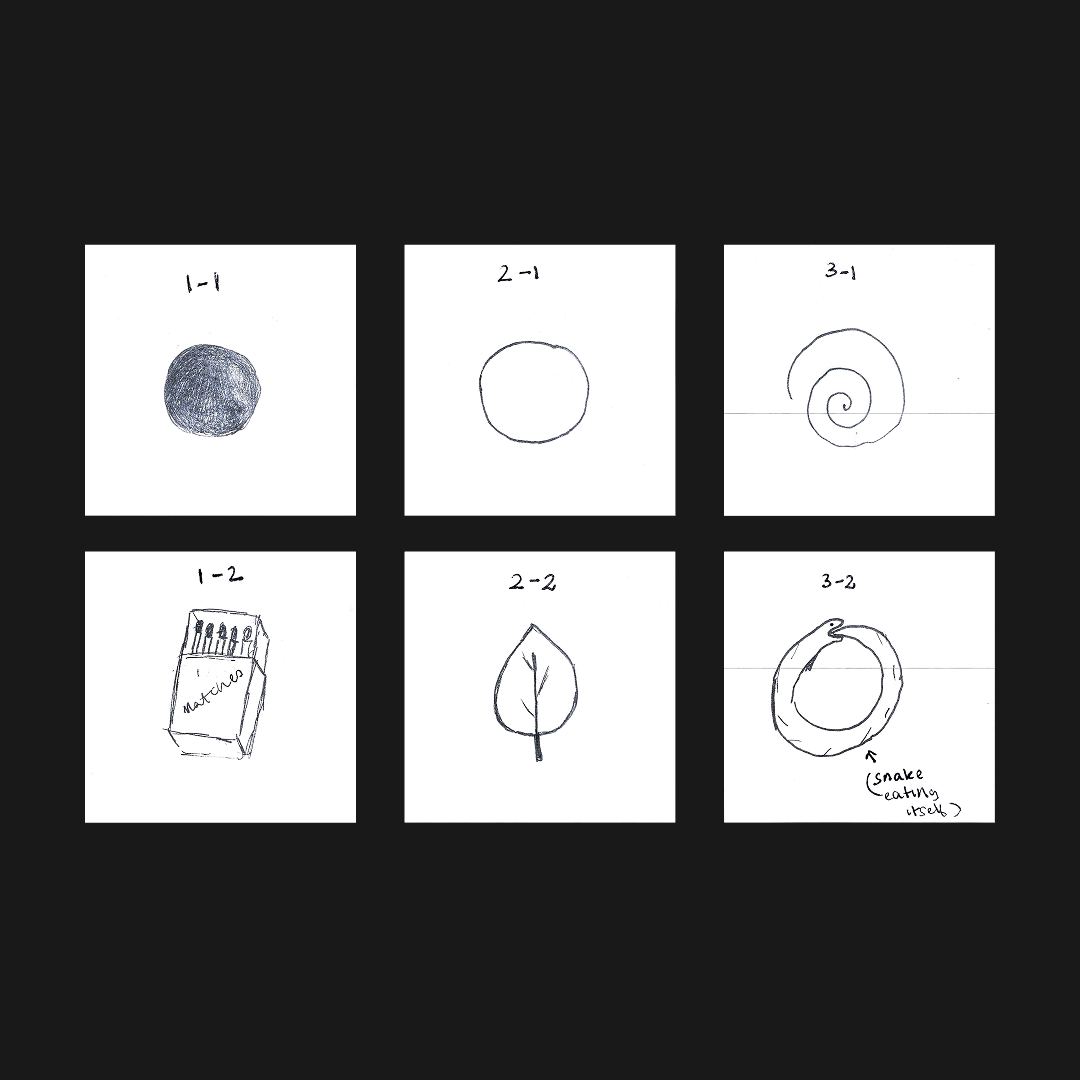
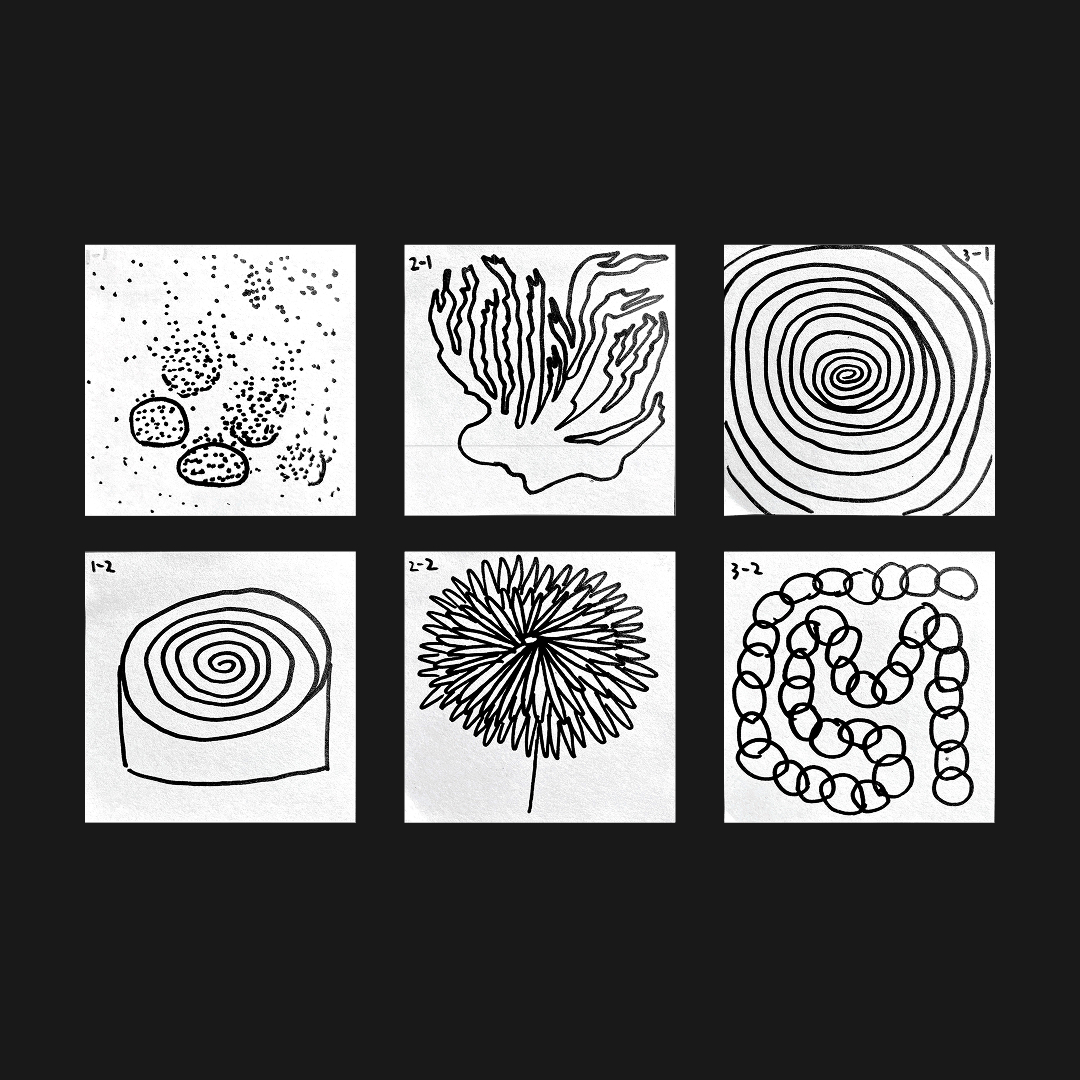
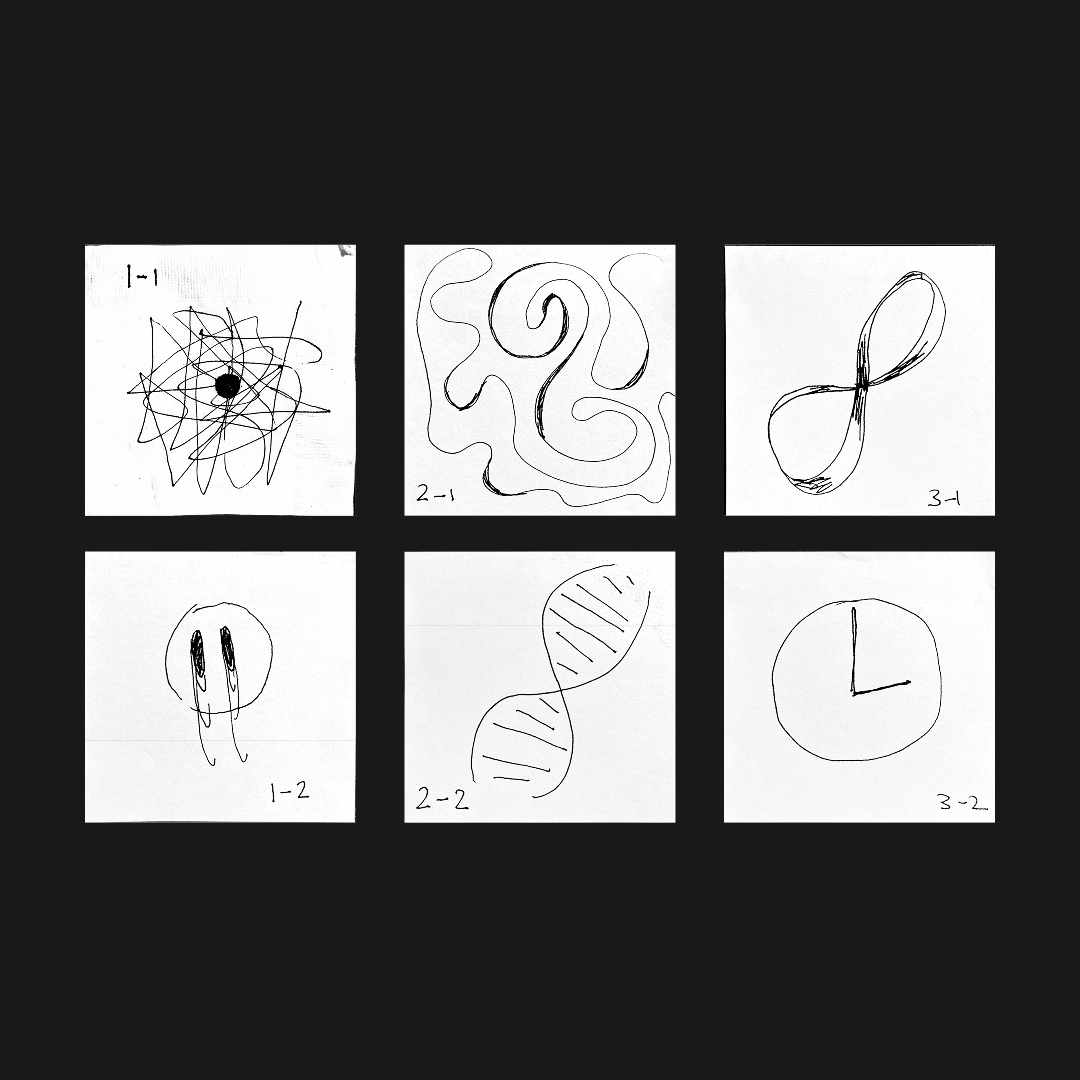
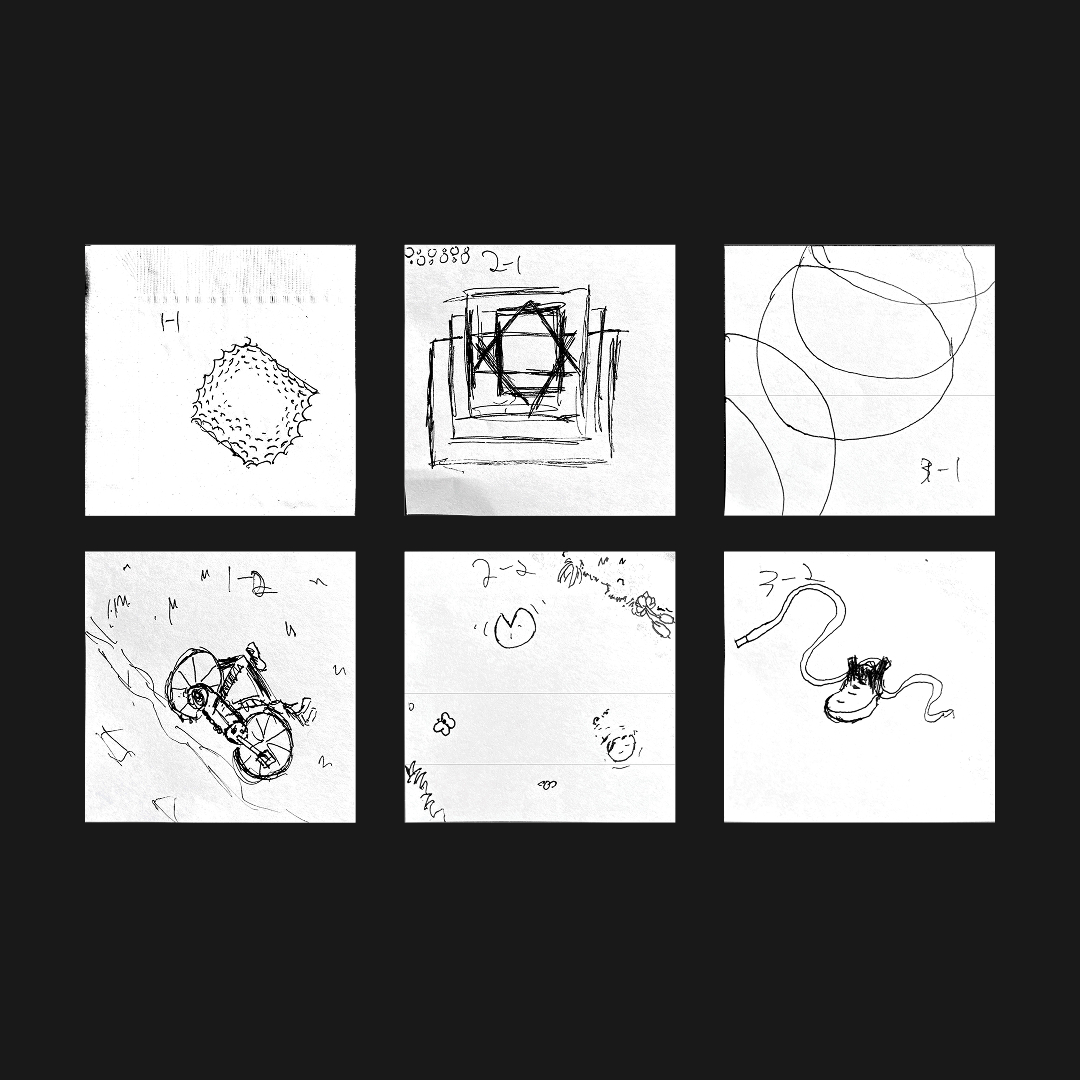
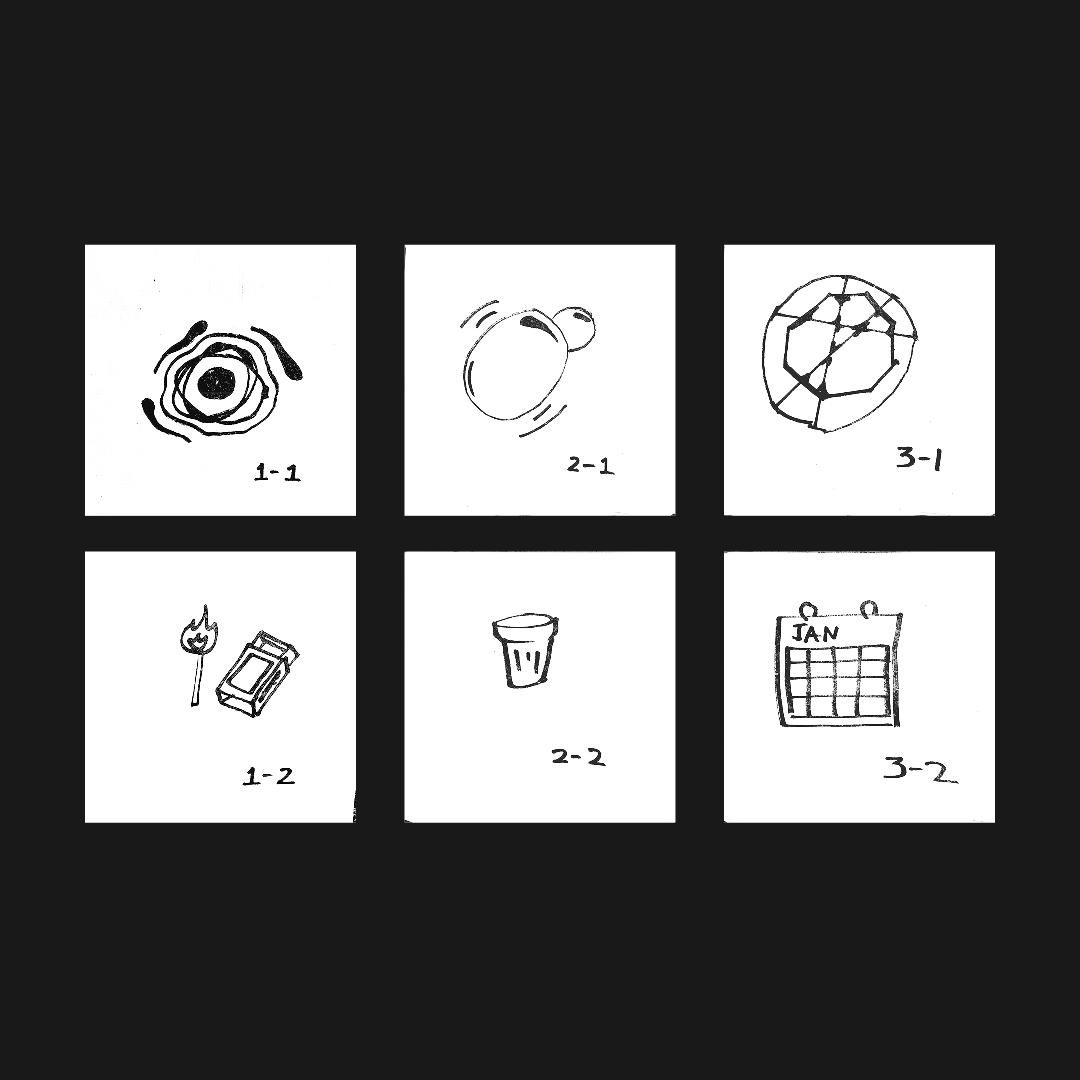
Thoughts and Findings
Through this research process, I discovered fascinating interpretations people have when confronted with the words ‘Death’, ‘Life’, and ‘Loops’. Many participants depicted these concepts using curved or rounded shapes. By analyzing their sketches and connecting them to their interviews, I was able to see that these sketches were a visual representation of they have said earlier in the interviews.
3. Observations
Primary Research Question
What are the similarities of the life of humans and the life of a computer-based system?
Research Condition
I documented any instances of coding-related features encountered during daily interactions and scenarios, excluding those involving technology.